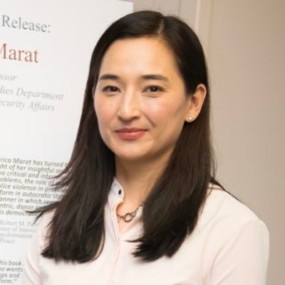
Dr Erica Marat
Associate Professor, National Defense University
Chief, Strategic Policy and Development Section, Police Division, Office of Rule of Law and Security Institutions, United Nations Department of Peacekeeping Operations, New York, USA
Andrew Carpenter is the Chief of the Strategic Policy and Development Section, Police Division, Office of Rule of Law and Security Institutions, United Nations Department of Peacekeeping Operations. As such, he and his staff are responsible for the development of concepts, doctrine, policy and planning for UN police-related activities worldwide. From August 2002 to November 2006, Mr. Carpenter was the Executive Officer (Political Affairs) of the Strategic Police Matters Unit of the Organization for Security and Co-operation in Europe (OSCE) in Vienna, Austria. From May 2000 until 2002, he served as the Counsellor – Legal and Political Affairs of the OSCE Advisory and Monitoring Group in Belarus. From December 1999 to May 2000, he was the Senior Planning and Training Officer of the Domestic Capacity-Building Division, OSCE Mission in Kosovo. Throughout the period 1997 to 1999, he acted as a Political Adviser for the Director of OSCE Office for Democratic Institutions and Human Rights; operating in the Balkans, Eastern Europe, Caucasus and Central Asia. Before his secondment by the Foreign and Commonwealth Office to the OSCE, Mr Carpenter was a faculty member at the universities of Portsmouth (UK), Warsaw and Wrocław (Poland), and a visiting scholar at the University of Virginia (USA). Mr. Carpenter serves on the Board of Directors of the International Policing Executive Symposium (IPES) and as the Moderator of the UN International Policing Advisory Council (IPAC). He is a founder member of the International Network to Promote the Rule of Law (INPROL) and a member of the Royal Institute of International Affairs (Chatham House); the International Association of Chiefs of Police (IACP); the International Association of Law enforcement Planners (IALEP); the International Association of Crime Analysts (IACA); the British Association for Central and Eastern Europe (BACEE); and the Old Ashfordians’ Association.